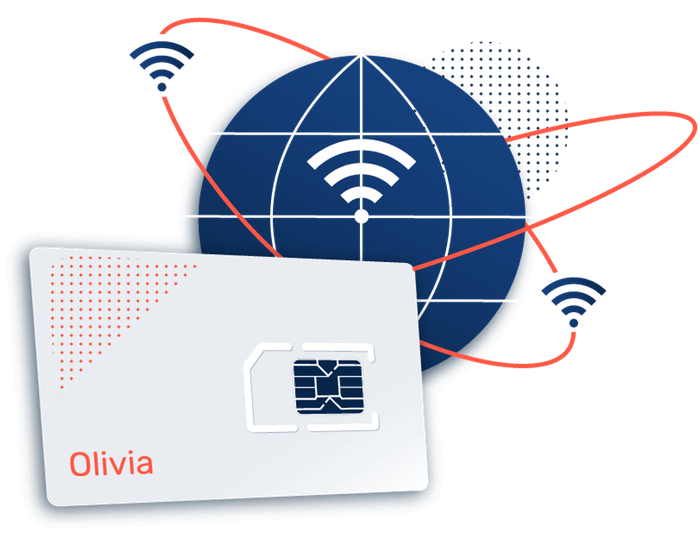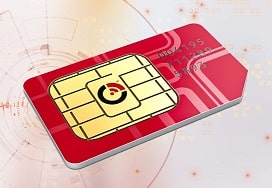Role Of Smart Sensors In Iot Cost Efficiency of IoT Monitoring
The integration of IoT connectivity for supply chain management has emerged as a revolutionary trend in recent times. This know-how enhances the effectivity and transparency of supply chains, permitting businesses to manage their operations extra effectively. The Internet of Things (IoT) contains a community of interconnected devices that acquire and change information over the internet. This connectivity is transforming the way organizations monitor and management their complete supply chain processes.
Supply chains traditionally operated with numerous levels of guide oversight. This approach often resulted in inefficiencies, delays, and inaccuracies. With IoT connectivity, businesses can gather real-time information from a number of sources, including sensors, RFID tags, and GPS devices. This data provides insights into the standing of products in transit, stock ranges, and tools performance. As a result, firms could make informed selections that enhance operational effectivity and cut back prices.
Real-time tracking of merchandise in transit is one of the most important benefits of IoT connectivity for supply chain management. By employing GPS and RFID know-how, organizations can monitor the exact location of their items at any given time. This visibility mitigates the dangers of loss and theft. Moreover, it permits higher planning and coordination, finally resulting in improved supply times and buyer satisfaction.
Data gathered via IoT devices aids in forecasting and demand planning. Companies can analyze patterns and developments from historical information to predict future needs. This predictive capability allows organizations to adjust their inventory ranges accordingly, thus preventing overstock or stockouts. Consequently, manufacturers can align production schedules with market demand, achieving a more harmonious circulate inside the supply chain.
Iot Remote Monitoring Solution Top BI Solutions for IoT Monitoring
IoT connectivity also enhances asset management by providing real-time information about tools and equipment. Businesses can monitor the efficiency of their property and schedule maintenance proactively, lowering downtime and making certain uninterrupted operations. Predictive maintenance powered by IoT can lead to appreciable savings on repair costs and prevent pricey disruptions to manufacturing processes.
In addition to operational efficiencies, IoT connectivity for supply chain management fosters collaboration throughout numerous stakeholders. Suppliers, distributors, and retailers can seamlessly share data, ensuring that everybody is aligned and knowledgeable. This shared information streamlines communication and decision-making, making a more cohesive network that may reply swiftly to any changes in circumstances or requirements.
The environmental impact of supply chains is turning into more and more crucial in right now's business landscape. Companies are underneath pressure to adopt sustainable practices. IoT connectivity can help organizations in monitoring their carbon footprint and useful resource consumption. By gathering data on logistics and transportation, businesses can optimize routes, thereby lowering gasoline consumption and emissions. This approach not only enhances sustainability but in addition improves operational effectivity.
Implementing IoT connectivity just isn't without its challenges. Companies must invest in expertise, infrastructure, and coaching to effectively utilize this method. The prices related to deploying IoT devices and ensuring cybersecurity are potential limitations. Addressing these challenges requires a strategic strategy that aligns the potential advantages of IoT connectivity with their organizational goals.
Remote Iot Monitoring Solution What is IoT Remote Monitoring?
Data privacy and security are also significant issues with the rising adoption of IoT in supply chains. The extra gadgets that connect with the internet, the greater the dangers of cyberattacks and data breaches. Organizations have to prioritize robust cybersecurity measures, making certain that their networks and information stay secure whereas enabling the full range of IoT capabilities.
Despite these challenges, the potential benefits of IoT connectivity for supply chain management are plain. Companies find out here now that embrace this technology will probably gain a competitive edge in their respective markets. Efficiency improvements, higher customer service, and enhanced collaboration open the door to new alternatives for innovation and progress.
As organizations proceed to acknowledge the value that IoT connectivity brings, the development is set to speed up. According to business forecasts, the variety of linked devices will only increase, leading to even more vital developments in supply chain administration. Embracing IoT can transform supply chains from traditional, reactive fashions to proactive, data-driven ecosystems that dynamically adapt based mostly on real-time information.
Iot Global Custom Solutions for Asset Monitoring
The journey in direction of complete IoT integration in supply chain management may be gradual, but the course is evident. Companies must be keen to invest in technology and ensure they have the proper expertise and assets in place. As supply chains evolve, the necessity for connectivity and data-driven insights will turn into paramount.
In conclusion, IoT connectivity for supply chain administration represents a pivotal shift in how organizations function. With real-time knowledge, enhanced visibility, and improved collaboration, businesses are higher outfitted to meet shopper calls for and navigate complexities. While there are challenges to deal with, the benefits of embracing IoT connectivity far outweigh the obstacles. Companies keen to innovate and adapt will thrive on this connected panorama, resulting in sustainable development and improved operational performance.
- Enhances real-time visibility across the availability chain by enabling devices to share information instantaneously.
- Facilitates predictive analytics to foresee supply chain disruptions and optimize inventory management.
- Enables remote monitoring of equipment and belongings, lowering the need for on-site inspections.
- Supports automated quality control processes by integrating IoT sensors that detect anomalies in products.
- Improves traceability by way of decentralized methods, permitting for easier tracking of goods from origin to vacation spot.
- Streamlines logistics operations with smart routing and automatic supply updates based mostly on real-time traffic knowledge.
- Minimizes operational costs through energy-efficient routing and resource administration enabled by connected units.
- Fosters collaboration between suppliers and retailers by creating an integrated view of stock levels and demand.
- Enhances customer expertise by providing transparency so as standing and estimated supply occasions by way of IoT connections.
- Enables speedy adaptation to market adjustments by permitting companies to assemble and analyze information for agile decision-making.undefinedWhat is IoT connectivity in supply chain management?
(Iot Global)
Iot Remote Monitoring Solution Basics of IoT Remote Monitoring
IoT connectivity in supply chain administration refers back to the integration of Internet of Things devices and sensors that facilitate real-time data trade throughout the supply chain. This connectivity enhances visibility, efficiency, and decision-making throughout the logistics course of.
How does IoT content improve supply chain visibility?
- Iot Remote Asset Monitoring Solution
Iot Remote Asset Monitoring Solution Cost Efficiency of IoT Monitoring
IoT enhances supply chain visibility by offering real-time monitoring of stock, shipments, and assets. Sensors acquire knowledge on location, temperature, and situation, allowing companies to observe and reply to occasions proactively, lowering delays and losses.
What are the advantages of utilizing IoT in supply chain management?
The key advantages of IoT in supply chain management embody improved efficiency, price savings, enhanced decision-making, better stock management, elevated transparency, and lowered dangers related to supply chain disruptions - Role Of Smart Sensors In Iot.
Iot Remote Monitoring And Control IoT Monitoring: Transforming Various Industries
What challenges might companies face when implementing IoT of their supply chain?
Common challenges include integration with existing systems, knowledge safety and privateness issues, excessive upfront costs, and the necessity for expert personnel to handle and analyze the information generated by IoT units.
How can IoT help in demand forecasting?
IoT units collect real-time data on client habits and inventory ranges, enabling extra correct demand forecasting. This data helps companies adjust their supply chain operations dynamically, leading to better alignment with market demands.
Remote Monitoring Solutions What is IoT Remote Monitoring?
Are there particular industries that profit most from IoT connectivity in supply chains?
Industries such as manufacturing, retail, logistics, and food and beverage are amongst those that benefit considerably from IoT connectivity. These sectors can utilize IoT to optimize operations, improve tracking, and improve product quality.

What types of IoT gadgets are commonly utilized in supply chain management?
Role Of Smart Sensors In Iot Software for Remote Asset Management
Common IoT devices in supply chain administration embrace GPS trackers, RFID tags, temperature and humidity sensors, and smart cameras. These devices provide important information for monitoring property and guaranteeing efficient operations.

How does IoT impression sustainability in supply chains?
Role Of Smart Sensors In Iot Basics of IoT Remote Monitoring
IoT promotes sustainability by optimizing resource use and lowering waste. By monitoring operations in real-time, companies can reduce energy consumption, decrease carbon footprints, and enhance recycling efforts all through the supply chain.
Is knowledge from IoT gadgets secure?
Iot Remote Monitoring And Control Software for IoT Remote Monitoring
While IoT gadgets can offer vital advantages, safety remains a concern. Businesses must implement robust knowledge safety measures, such as encryption, secure entry controls, and common security audits, to safeguard sensitive info collected by IoT techniques.